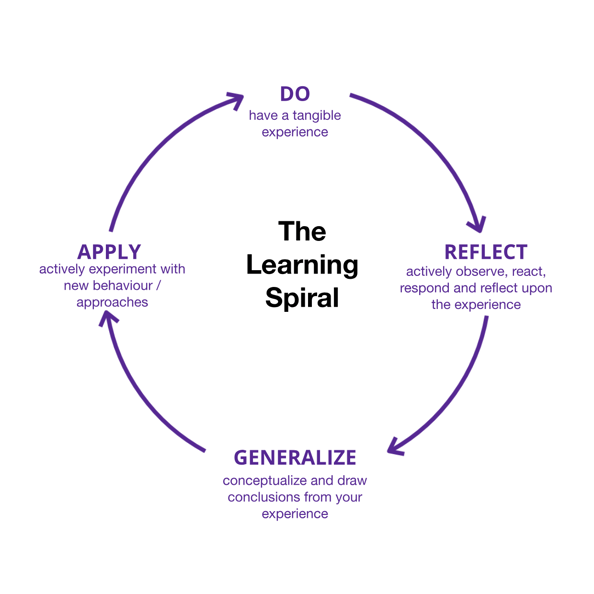In the Hyper Island Master’s Programmes, Students are introduced to the Learning Spiral & Experiential Learning. It is the process of learning new skills, knowledge, behaviors, and attitudes, through experience and active reflection.
It is a widely-used learning approach that emphasizes doing, reflection, and active experimentation by individual learners and groups.
Knowledge is continuously gained through both personal and environmental experiences.
In order to gain genuine knowledge from an experience, certain abilities are required:
- The learner is willing to be actively involved in the experience,
- The learner is able to reflect on the experience,
- The learner has and uses analytical skills to conceptualize the experience; and
- The learner has and uses decision-making and problem-solving skills in order to use the new ideas gained from the experience.
This leads us to form a model for the learning process composed out of four elements, sometimes illustrated in the “Learning spiral”:

Experimental Learning Cycle:
DO (Tangible Experience)
A new experience or situation is encountered, or there’s a reinterpretation of an existing experience.
REFLECT (Observation Reflection)
Reflection upon the new experience; of particular importance are any inconsistencies between experience and understanding.
GENERALIZE (Abstract Conceptualization)
Reflection gives rise to a new idea or a modification of an existing abstract concept.
APPLY (Active Experimentation)
The learner applies the new learning to the world around them to see what results.


